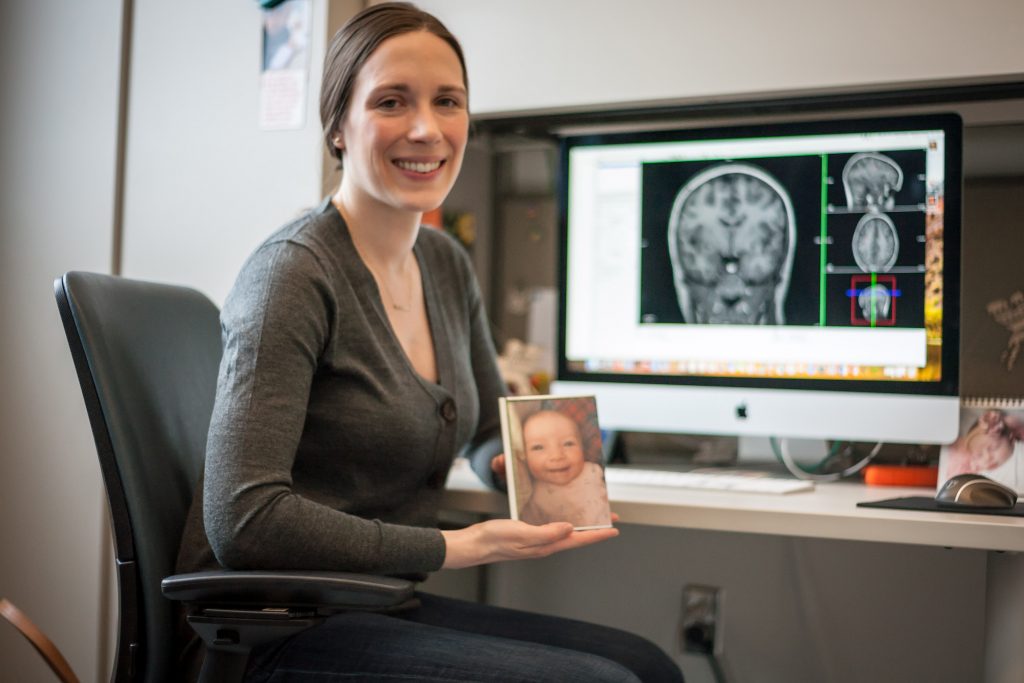
Writer
Kim Krieger
Kim Krieger has covered politics from Capitol Hill and energy commodities from the floor of the New York Mercantile Exchange. Her stories have exposed fraud in the California power markets and mathematical malfeasance in physics. And she knows what really goes on in the National Radio Quiet Zone. These days, Kim tells clear, compelling stories of the research at UConn. Her work connects Connecticut citizens and the press with the vast resources of their flagship public university. When not at UConn, she can be found kayaking among the beautiful Norwalk islands, digging in her garden, or occasionally enjoying the silence in the National Radio Quiet Zone.
Author Archive
UConn and Foundation for Prader-Willi Research Create Stem Cell Biobank
The biobank will be able to supply induced-pluripotent stem cells for Prader-Willi syndrome to researchers throughout the world.
April 9, 2019 | Kim Krieger
Study: Brain Stem Cells Age Faster in MS Patients
The prematurely old cells act differently in the brain than normal ones, and could be the key to new treatments for the disease, say researchers.
March 25, 2019 | Kim Krieger
First Steps: UConn Partners on Child Care Fellowship
A new private-public fellowship program is intended to make it easier for new UConn parents to return to research.
March 13, 2019 | Kim Krieger
Horseshoe Crabs: How Did They Get an Exception?
How they've managed to stay the same is a great mystery. Now, researchers at UConn are assembling a detailed map of the horseshoe crab’s DNA, to learn why these 'living fossils' seem frozen in time.
March 4, 2019 | Kim Krieger, and Angelina Reyes
A Better Way to Make Acrylics
Researchers from UConn and ExxonMobil describe a new process for making acrylics that would increase energy efficiency and reduce toxic byproducts.
February 8, 2019 | Kim Krieger
A Microscope as a Shovel? UConn Researchers Dig It
Using a familiar tool in a way it was never intended to be used opens up a whole new method to explore materials, report UConn researchers in a recent study.
January 28, 2019 | Kim Krieger
Artificial Skin Could Give Superhuman Perception
Metal skin might sound like a superhero power, but UConn researchers hope it could help burn victims 'feel' again.
January 22, 2019 | Kim Krieger
Health Disparities Damage Men and Boys of Color and CT’s Economy
Commenting on a recently published report by the Health Disparities Institute at UConn Health, its director says addressing health equity is not just a matter of social justice but, for Connecticut, may be a matter of economic survival.
January 14, 2019 | Kim Krieger
Hearing Loss Announced by Protein Boom in Blood
After finding that blood levels of a special protein found only in the inner ear spike after exposure to loud noise, UConn Health researchers are developing tests to identify those at risk of hearing loss.
January 7, 2019 | Kim Krieger
Two UConn Faculty Named AAAS Fellows
The two women, physics researcher Nora Berrah and dental researcher Susan Reisine, are being honored by the world’s largest general scientific society for their distinguished contributions to their respective fields.
November 29, 2018 | Christine Buckley, and Kim Krieger









